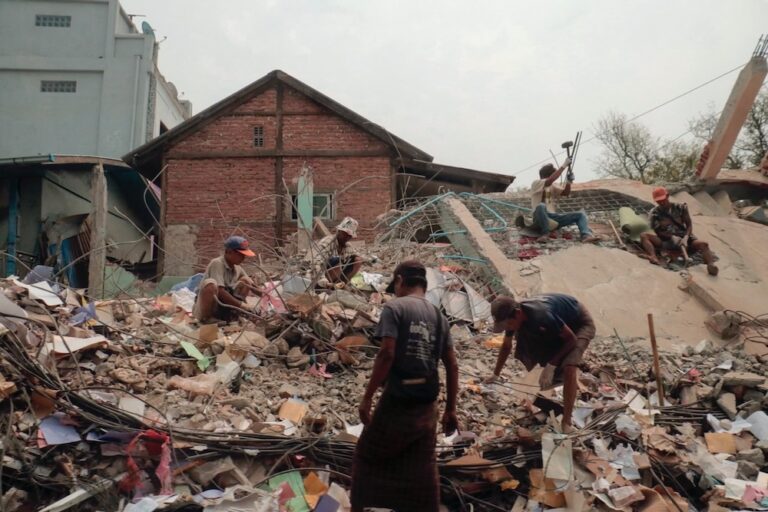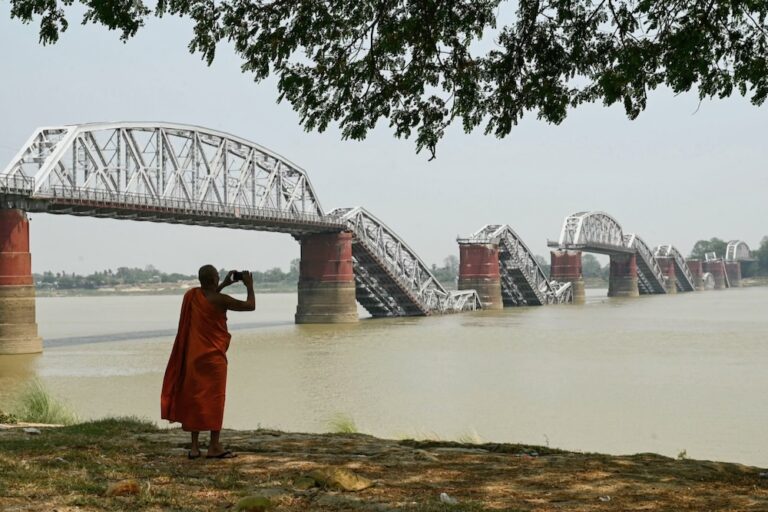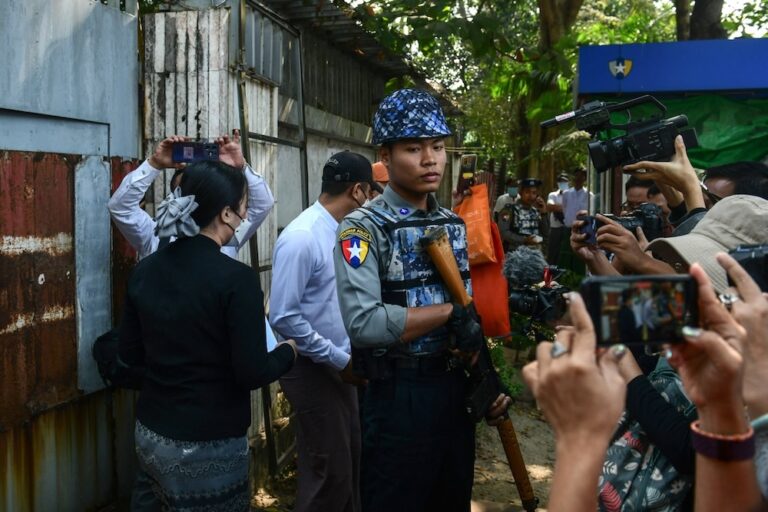(RSF/IFEX) – Between 8 August 1988, which saw the bloody repression of student protesters by the Burmese army, and 18 September 1988, the date when a new military regime officially took power in the country, Burma has witnessed one of the worst periods in its history. The democratic movement has been crushed and freedom of […]
(RSF/IFEX) – Between 8 August 1988, which saw the bloody repression of
student protesters by the Burmese army, and 18 September 1988, the date when
a new military regime officially took power in the country, Burma has
witnessed one of the worst periods in its history. The democratic movement
has been crushed and freedom of expression completely smothered. With the
aim of commemorating the tenth anniversary of these tragic weeks, Reporters
sans frontières (RSF) is launching an advertising campaign in some fifteen
weekly publications. Titled “Burma: You, too – Visit the country of a
thousand temples and of imprisoned and tortured journalists” (“La Birmanie.
Vous aussi, visitez le pays au mille temples et aux journalistes emprisonnés
et torturés”), the campaign was conceived by the Alice agency, with
publication space offered by the media outlets.
**For background to cases mentioned below, see previous IFEX alerts**
RSF continues to call for the immediate and unconditional release of seven
journalists currently detained in Burma. All of them are members of the
National League for Democracy (NLD) headed by Aung San Suu Kyi, winner of
the Nobel Peace Prize in 1991. Among the journalists is San San Nweh, who
has been held in Insein prison in Rangoon since August 1994. On 6 October of
that year, under Article 5 of the country’s Emergency Laws, a court whose
proceedings took place at the prison sentenced her to seven years in prison
for having “circulated information harmful to the State.” San San Nweh,
among other charges, was accused of having spoken in April 1993 in a video
report prepared by two French journalists. She is also serving an additional
sentence of three years in prison under Article 14 of the law dealing with
illegal associations. Her prison conditions, like those of her imprisoned
colleagues, are extremely difficult; she has reportedly been mistreated.
Certain journalists, such as Win Tin, editor-in-chief of the daily
“Hanthawadi” and vice-president the Writers Association of Burma, who has
been serving a ten-year sentence since 1989, spent several months in a cage
normally reserved for dogs.
The Burmese media have been subjected to strict censorship that prevents
them from using such expressions as “democracy” and “human rights”. Contact
with the foreign media is limited; every Burmese citizen risks going to
prison if he is found guilty of transmitting “false information” to the
international media. Legislative measures against the media are such that no
free press can be established in the country. For example, under an October
1996 law in regard to journalistic material, any person in possession of a
computer without prior authorisation risks being sent to prison for up to
fifteen years.
Since the military junta came to power in September 1988, at least fourteen
Burmese journalists have been incarcerated for several years. Two of them
died in prison. One, Ne Min, was arrested in October 1990 for “sympathising
too much with the opposition”. He died after not being treated for cirrhosis
of the liver.


